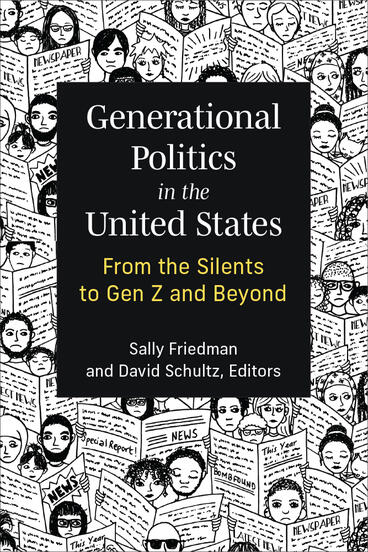Generational Politics in the United States
From the Silents to Gen Z and Beyond
How generational change impacts the future of American politics
Description
The role of generations is an important, yet often overlooked, variable in the study of American politics. A topic of research in sociology, business, and marketing, the focus on generations frequently occurs in American pop culture and journalism. The general public often assumes that different generations have different political leanings and beliefs—that the Silent Generation is all Republican, white, and conservative, or that Millennials are liberal and diverse—but are these assumptions true?
Generational Politics in the United States is the first comprehensive book that examines the concept of generations from a political science perspective. It defines what a generation is and how to sort out the differences between life cycle, cohort, and aging effect. The book then brings together chapters from an array of political science scholars that examine the role of generations in American politics and how it relates to other variables such as age, race, gender, and socioeconomic status. It discusses how politics in the United States are impacted by changes in generations, including how the passing of the Baby Boom generation and rise of the Millennials and Gen Z will change American politics. By examining the differences in political attitudes, engagement, and impact of recent generations, Generational Politics in the United States suggests how generational change will impact American politics in the future.
Sally Friedman is Associate Professor of Political Science at the University at Albany.
David Schultz is Hamline University Distinguished Professor of Political Science, Legal Studies, and Environmental Studies and Professor of Law at the University of Minnesota.
Reviews
“The topic of political generations in the United States continues to be intriguing and perplexing. This edited volume based on original research from a wide variety of scholars, represents a fresh, valuable contribution to the subject. With an unusual degree of continuity across chapters, the volume’s especially strong, distinctive features include applications of the generational approach to an array of contemporary political issues and behaviors rather than to a single one; innovative attention to potential generational effects at both the mass and elite levels; an instructive, rare mix of methodologies applied to this topic; and some appreciation for historical comparison.”
- Kent Jennings, University of Michigan and University of California Santa Barbara
“What’s in a generation? How do we know when a new one begins, while an old one ends? While fundamental for our understanding of how social change takes place, these questions have for long haunted students of political socialization due to the inherent conceptual and methodological ambiguities surrounding the notion of a generation. Generational Politics in the United States is a game changer in this field, as it brings together an eclectic set of leading scholars who shed brand new light on these questions. The book clears the scene both in terms of how we should define generations and in terms of how we should go about detecting them empirically. Going beyond public opinion to also explore how generations manifest themselves within elite behavior, this book is bound to be a cornerstone in the study of generational politics and political socialization, shaping the discourse for years to come.”
- Elias Dinas, European University Institute
“This volume reopens the question of generational impact on political behavior and provides some direction for future research.”
- John J. McGlennon, College of William & Mary
“A substantive, thoughtful collection that examines whether generations ‘matter’ to American politics in the sense of having an impact beyond age alone. This will be a useful resource for the profession and beyond.”
- Shauna L. Shames, Rutgers University in Camden

